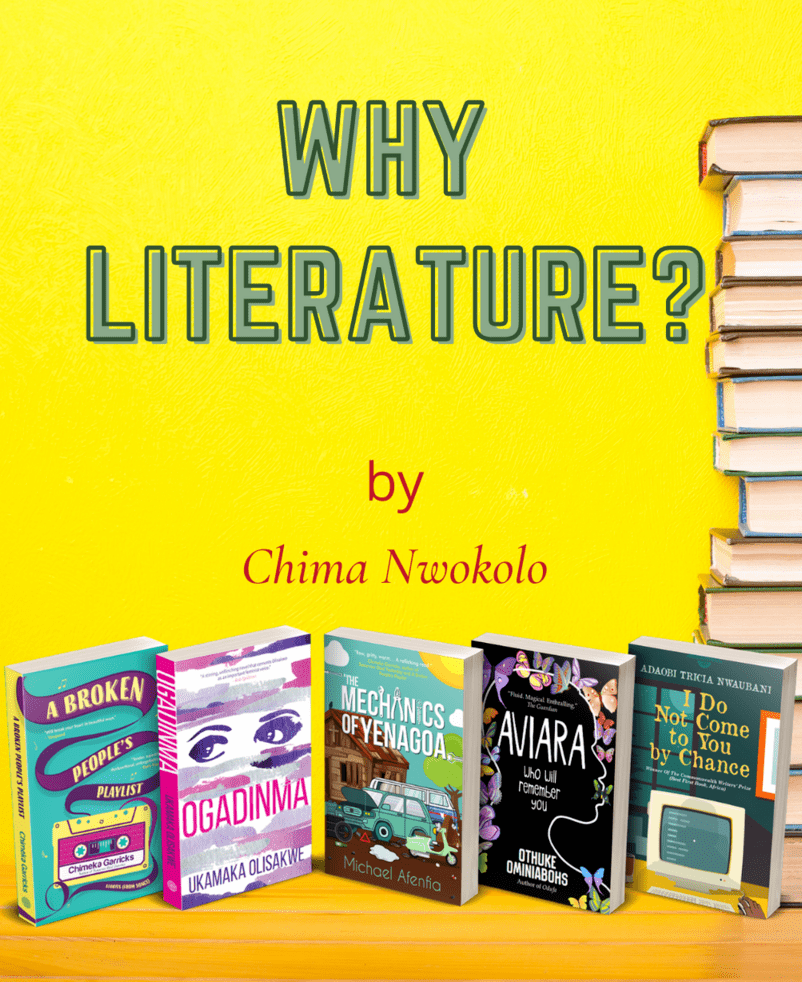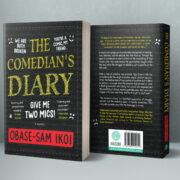
This is why we read – and write – literature: imagine you go on a long journey for work. Your travel companions are fascinating, so you spend the six hours of the trip chatting with them. When you arrive, your boss takes you to a podium in a conference room and asks you to describe the famous landmarks en route. You are blindsided. He is surprised that you are surprised. ‘Didn’t you get the memo?’ he asks, ‘This was the purpose of the trip!’ But you never got the memo and you stare silently at the expectant faces of your audience. You did not even glance at the landscape on the journey, so you remember nothing of it. You were waiting to ‘arrive’, whereas the journey was the point of the trip.
Here’s the Memo on Life, for those who pursue it like a destination: the only thing at the end of life is a grave. The journey is everything.
Literature helps to fully experience this journey of life. Why can’t we just enjoy the remnants of the working day with our lovers? Why is beer and pepper-soup with friends and family not good enough to soak up all our leisure? Because all these – good as they are – are like the few feet beyond our bus window where hawkers peddle oranges and okpa. There is much more to the landscape of our journeys, ruins beneath the savannah, mountain peaks above the clouds, mythic cities beyond the rim of distant treelines…
That terrain is the domain of literature. In all creation, the only being that can be more profound than a speaking human is the writing human. Why is this? Because the deepest insights that can be shared across a dinner table are mere rough drafts for the writer. The most entrancing tales told in a moonlit circle are first drafts for the writer. They are written and edited, recast, rethought, relayered, reimagined, reedited… and rewritten. The published results are a library from the distant ages, of the most profound insights in all creation, with the past fertilising the present. Beer parlour witticisms are like cups of tea, compared to the ocean of this library. This library is the domain of literature.
A life without literature is fine, I suppose. But a good book turns us from our narrow ribbon of tarmac to the breathless landscapes on the journey of life. Self-help books are fine, of course, teaching what buses to catch for a smoother trip to the destination. Holy books are fine of course, speaking to potential journeys beyond the grave. Books can teach a multitude of things from internal combustion to the speculative life of aliens. A science text may teach us to make a bomb. A holy tome may teach us to use it on the enemy. It is often literature that asks ‘who, really, is the enemy?’ For nothing liberates empathy like literature, keeping our minds fully alive, fully plugged into humanity, on the journey of this life.
All literature does not enrich equally, because writers are as various as humanity. Good writers flesh out caricatures. The black-and-white enemy we hissed at a thousand times before blooms into colour, into humanity, into beauty even, on the pages of a good writer. We may have to wade through floods of contrary pages to find tales that open new eyes in us, but even that journey of discovery through purple froth and literary dross is worth it, because we learn discernment and critical skills. These are precisely the skills that protect a citizenry from the exploitations of religious and political leaders whose operations are allergic to critical thought, whose textual interpretations demand the shutting down of discernment. For it is by hauling oil that we appreciate the lightness of water. Especially inside literature, the journey is important.
To know people better, read writers who love people. A good writer of people explores the interior lives of their characters so well, you understand yourself and others better. A good writer of places makes your eyes water from the woodsmoke of distant climes you may never see. A good writer of food makes you salivate for cuisine you will not see from the bus window of your daily commute. With a good writer of the mind, you climb fleetly from idea to idea, so that when you close the book, you are in a different place, in a different life. You will find landmarks imprinted on your mind from several journeys in addition to yours, so that when life gives you a podium before an expectant audience, you will speak wisely, and we will listen raptly, for this is why we read – and write – literature.
This article was first published on Nwokolo.com. It is reproduced here with permission from the author.
